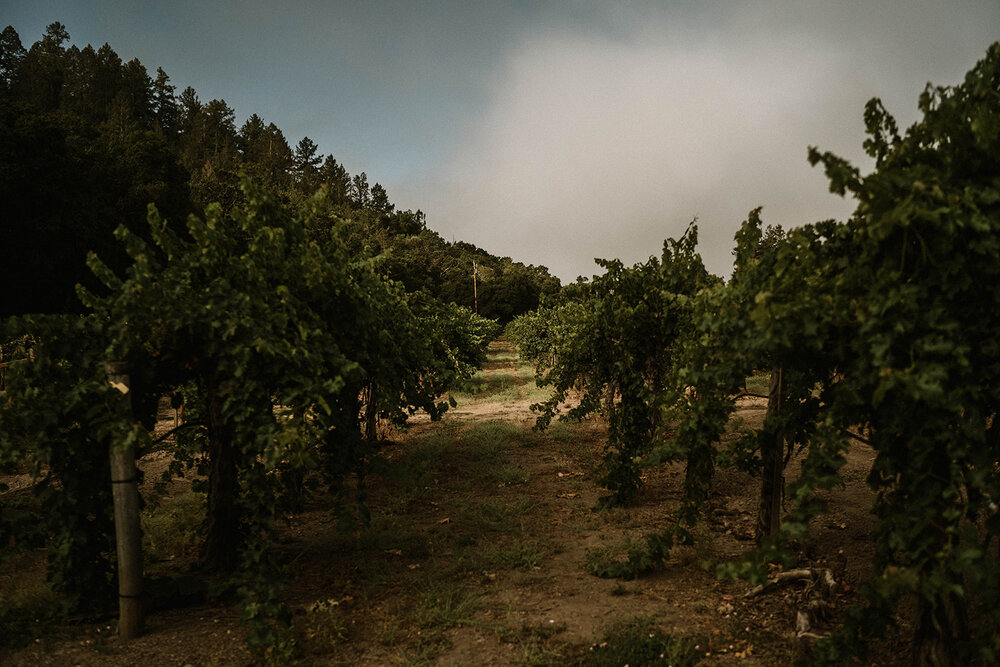By Barry Eberling, Sep 14, 2023 | Napa Register |
Smith-Madrone and Summit Lake wineries want in on the legal dispute between Napa County and Hoopes Vineyard winery, saying they have a stake in the outcome.
The two wineries filed motions to join Hoopes Vineyard in the case, which involves in part whether Hoopes tours and tastings are legal. Napa County Superior Court Judge Cynthia Smith is to hear the intervention motions on Oct. 5.
At issue is who has gone rogue on rules regulating small wineries, the county or Hoopes Vineyard — and now, Smith-Madrone and Summit Lake have entered the debate.
Napa County “has a practice of claiming violations and/or requiring winery owners to undertake use permit applications for conduct the county cannot regulate, [which] is beyond the county’s jurisdiction… ,” the Smith-Madrone filing said.
The Summit Lake filing also criticizes the county winery regulation regime.
“At the heart of the controversy is whether Napa County can render valueless a lawful, operating business — a winery — from doing what a winery does through arbitrary, vague and unintelligible rules,” the filing said.
Napa County in its court filings talked about regulating visitation and marketing events at wineries to protect the Agricultural Preserve, which is the part of the Napa Valley floor where farming is legally the dominant use.
“Because most commercial uses and services are directly at odds with this agricultural purpose, permissible land use in the agricultural preserve district, even at Napa County’s most famous wineries, are quite limited and are carefully spelled out in the county’s zoning code,” a county filing said.
A jury trial could begin Oct. 30.
Wineries such as Hoopes, Smith-Madrone and Summit Lake were established before the county’s landmark 1990 winery definition ordinance. At issue is what rights they hold amid the layers of evolving county winery regulations over decades.
Here is a look at the three wineries and their situations as described in court papers:
Hoopes Vineyard — Hoopes bought the former Hopper Creek winery between Napa and Yountville in 2017. The Hoopes spent nearly $1 million remodeling the winery in 2018 and 2019.
The case focuses on “small winery exemption certificates” the county offered during the 1980s, with the original owners of the winery obtaining one in 1984. A county report said 34 wineries were established under this exemption that is no longer available.
Small winery exemption wineries met certain conditions in return for streamlined approval. They cannot produce more than 20,000 gallons of wine annually, have public tours or provide wine tastings. They have no use permits and must obtain one to go beyond these restrictions, according to the county.
In early 2020, the county Code Compliance Division sent Hoopes winery a notice of apparent violations for such alleged offenses as holding illegal tours and tastings and having an animal sanctuary. Last year, the county sued Hoopes winery.
The county asked that the Hoopes property be brought in compliance with county code and fined $1,000 per alleged violation per day.
Hoopes Vineyard responded with a cross-complaint against the county. It challenged whether the county correctly applies its rules and also whether some of those rules are constitutional.
Lindsey Hoopes, in a recent news release, accused Napa County of overreach, inconsistency and prematurely suing those who question its conclusions.
“It is impossible to operate a business when the goalposts keep moving,” she said. “This is an enormous problem, but everyone is too afraid to come forward. It has to stop, and I’m grateful to these other small wineries for having the courage to stand with me.”
In a September court filing, Napa County takes another view.
“The county stands ready to consider a use permit application if defendants decide to follow the same rules as hundreds of other wineries that are operating under permits,” the filing said.
Summit Lake Vineyards and Winery — This winery in the Angwin area was established under a small winery exemption in 1984 by the Brakesman family, which still operates it today.
In 2018, Summit Lake decided to seek an increase in wine production. That would involve securing a use permit to replace the small winery exemption.
Summit Lake had hosted wine tasting visitors for more than 40 years. The county determined the visitation is a violation. But seeking a use permit to secure visitation would trigger road improvements that would cost over $1 million, the winery filing said.
“It’s a deal-breaker for sure,” Heather Griffin of the winery told the Napa Valley Register last year. “Most of us who have grown up in this valley, we make ends meet.”
Moreover, the winery contends the small winery exemption allowed tours and tastings by appointment. Therefore, existing visitation shouldn’t trigger road improvements.
Summit Lake dropped its request to increase production. But the county told the winery to cease sales and tastings or obtain a use permit, the winery filing said.
The courts could determine whether the winery’s historic visitation is legal or not.
“We’re joining this lawsuit because we have hit a dead end and have no other viable options,” Griffin said in a recent statement.
Smith-Madrone Winery — Stuart Smith obtained a use permit for his Smith-Madrone Winery near St. Helena in 1973. Smith claimed he is allowed to hold tours and tastings by appointment and has been doing so for about 50 years.
The filing mentioned events held at the winery over the years, including ones attended by county supervisors. From 1973 to 2023, the county never notified Smith-Madrone it was acting illegally.
But Smith looked at the county’s online winery database and saw Smith-Madrone as being limited to no more than 10 tasting visitors weekly and no marketing events.
Smith-Madrone believes the county arbitrarily designated its use permit as having limits on private tours and tastings and marketing events, limits that do not exist, the filing said. The winery asked for judicial clarification of its rights.
“Smith-Madrone deems this property entitlement an incredibly valuable asset of the land and the winery operation, without which Smith-Madrone may not survive as a business,” the filing said.
Smith addressed the lawsuit in a press release.
“Napa County has long attempted to assert jurisdiction over small wineries even when it’s preempted by state law,” he said. “Fifty years ago, the county tried to regulate activity at my vineyard operation that was governed by state law and the California Supreme Court ruled against them. We joined this lawsuit because it’s a half-century later and the county still hasn’t learned it’s lesson.”
Napa County as of Thursday had yet to respond to these claims in its court filings. County policy is to avoid issuing public comments on lawsuits.Smith-Madrone filed with the court under the name of Cooks Flat Associates.


